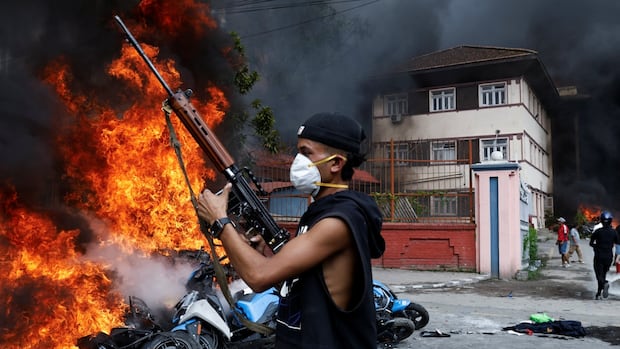Nepal’s Prime Minister K.P. Sharma Oli has tendered his resignation, prompting calls for calm from the country’s security authorities amid ongoing protests. Demonstrators, predominantly young students, defied a curfew to target government facilities and symbols of political power. The unrest was fueled by long-standing accusations of corruption and nepotism, aggravated by a brief social media ban that was swiftly reversed but failed to quell the discontent.
Protesters continued to block roads, set ablaze government buildings including the parliament in Kathmandu, and even targeted residences of prominent politicians. In response, the military is deploying troops to restore order and contain the violence. Tragically, police resorted to deadly force on Monday, resulting in 19 fatalities and over 100 injuries among demonstrators.
The ban on 26 social media platforms in Nepal, including major platforms like Facebook and YouTube, sparked widespread criticism as a measure to suppress dissent. While the government cited combating hate speech and misinformation as reasons for the ban, many viewed it as an attempt to stifle opposing voices, contributing to the rapid spread of protests.
The discontent among Nepal’s youth was further exacerbated by revelations of “nepo kids,” offspring of politicians flaunting extravagant lifestyles online, contrasting starkly with the struggles faced by the majority of Nepalese citizens. High unemployment rates, with approximately 20% of youths jobless, coupled with limited domestic opportunities leading many to seek work abroad, have fueled frustrations.
The protesters, self-identified as “Gen Z,” are advocating for a brighter future for Nepal’s youth, emphasizing a grassroots movement independent of political affiliations. Despite Oli’s resignation in response to the unrest, many demonstrators believe more accountability is needed, signaling a deep-rooted desire for systemic change in governance. The ongoing violent protests have left the country in a state of uncertainty, echoing similar student-led uprisings in neighboring countries like Bangladesh and Sri Lanka in recent years.
As Nepal grapples with the aftermath of the protests, the situation underscores broader regional challenges related to economic grievances, political corruption, and the growing influence of youth-driven movements demanding reform.



